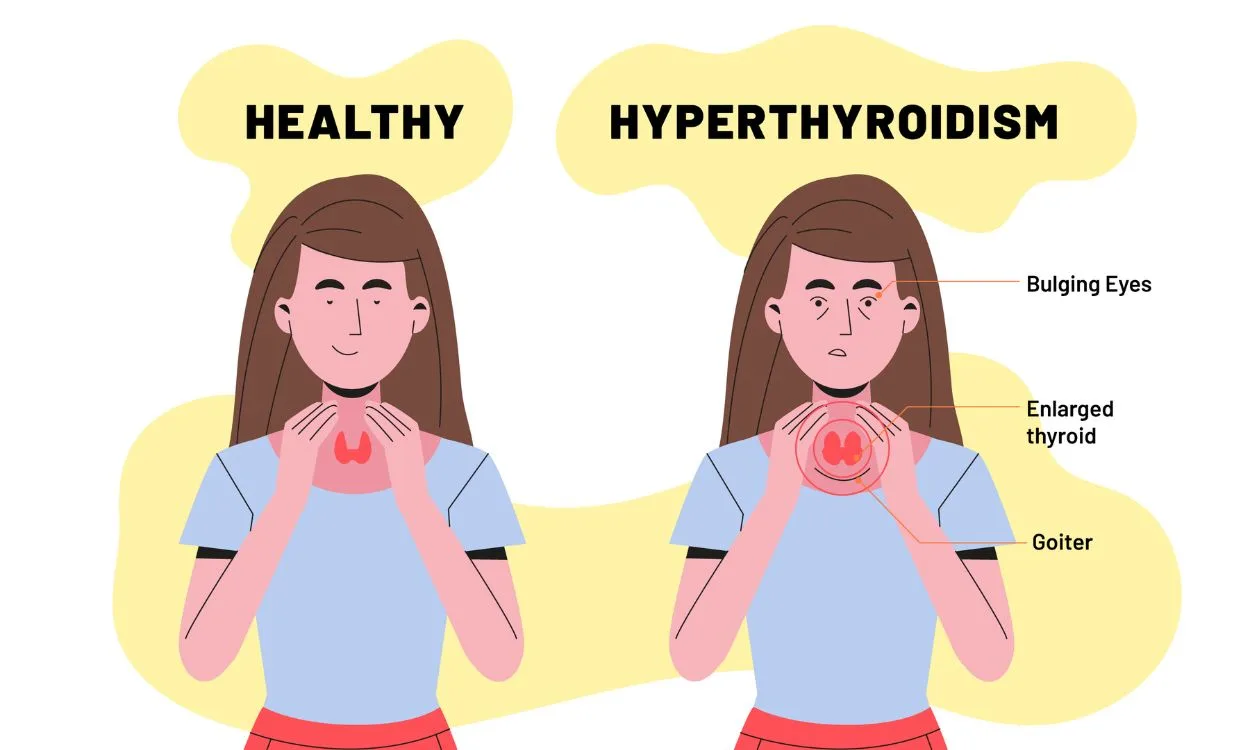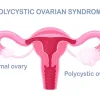What is Hypothyroidism?
Hypothyroidism is a common health condition that affects the functioning of the thyroid gland. The thyroid gland is a small, butterfly-shaped organ located in the neck, and it plays a crucial role in regulating various bodily functions. When the thyroid gland fails to produce enough thyroid hormones, it leads to hypothyroidism.
Here are some key points to understand about hypothyroidism:
- Causes: Hypothyroidism can have various underlying causes, including autoimmune disease (such as Hashimoto’s thyroiditis), radiation therapy, surgical removal of the thyroid gland, certain medications, and iodine deficiency.
- Symptoms: The symptoms of hypothyroidism can vary from person to person, but some common signs include fatigue, weight gain, cold intolerance, dry skin, hair loss, muscle weakness, constipation, depression, and memory problems.
- Diagnosis: To diagnose hypothyroidism, a healthcare professional will evaluate your symptoms, perform a physical examination, and order blood tests to measure the levels of thyroid-stimulating hormone (TSH) and thyroid hormones (T3 and T4). Elevated TSH levels and low thyroid hormone levels indicate hypothyroidism.
- Treatment: The main treatment for hypothyroidism is synthetic thyroid hormone replacement therapy. The medication, usually taken in the form of a daily pill, helps to restore and maintain the normal levels of thyroid hormones in the body. Regular monitoring of thyroid hormone levels and adjustments to the dosage may be necessary.
- Lifestyle Management: In addition to medication, certain lifestyle modifications can help manage hypothyroidism. These may include a well-balanced diet with adequate iodine and essential nutrients, regular exercise, stress management, and avoiding goitrogenic foods (foods that interfere with thyroid function).
- Complications: If left untreated or poorly managed, hypothyroidism can lead to various complications, including weight gain, heart problems, infertility, joint pain, and a condition called myxedema, which is a severe form of hypothyroidism that requires immediate medical attention.
- Importance of Regular Check-ups: It’s crucial for individuals with hypothyroidism to have regular check-ups with their healthcare provider. This ensures that the thyroid hormone levels are properly monitored, and any necessary adjustments to the medication dosage can be made.
Now that you have a better understanding of hypothyroidism, it’s important to take control of your health and well-being. Fitpaa, an AI-driven metabolism monitoring and management technology, can assist you in achieving your health and fitness goals, including managing hypothyroidism effectively.
Download the Fitpaa app, and with the help of their expert team of fitness coaches, nutritionists, and doctors, you can access personalized guidance and support tailored to your specific needs. Fitpaa’s comprehensive approach, incorporating medical therapy, exercise therapy, nutrition therapy, and cognitive behavior therapy, can optimize your metabolism and help you achieve your health and fitness goals while managing hypothyroidism.
Remember, your well-being is the mission of Fitpaa, and they are dedicated to helping you on your journey to a healthier and happier life.
Download the Fitpaa app today and take the first step towards managing hypothyroidism and achieving your health and fitness goals with guaranteed results!









